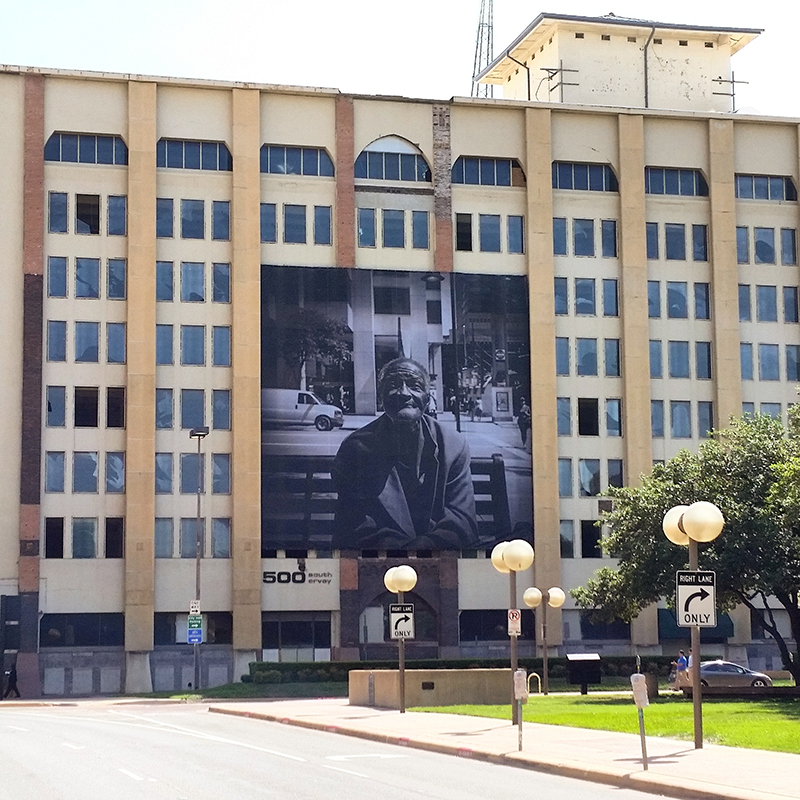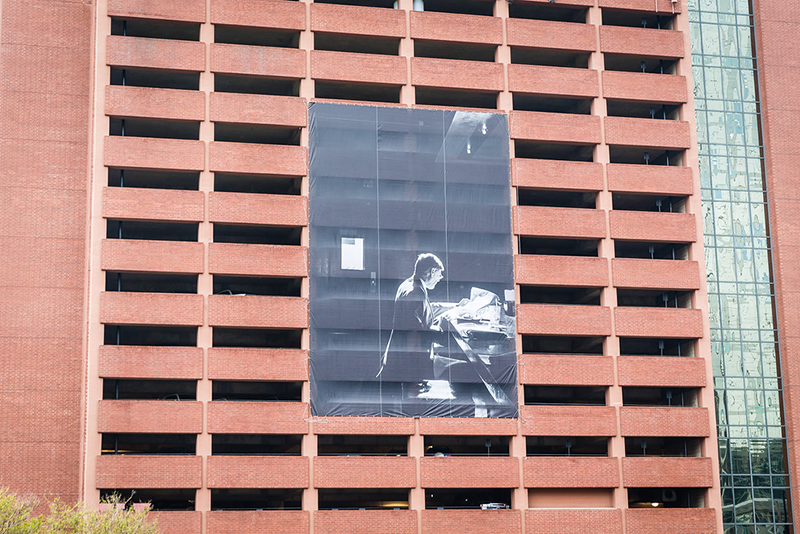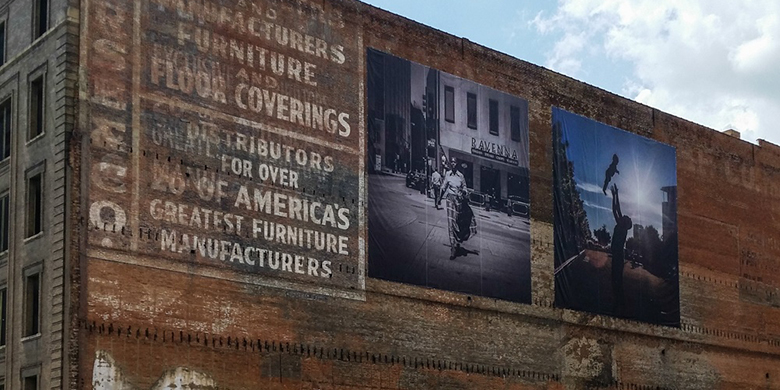Last updated on September 24, 2019
Throughout April and May, Richard Andrew Sharum has embarked on what has been described as “perhaps the most ambitious photography project ever to take place in Dallas.” A larger scale version of a project from last year, Observe Dallas 2015 shows photos of everyday people, observed through Sharum’s eyes and lens, in the hopes that those who see the photos will stop, think and observe the beauty in their daily lives.
The prints are huge, prominently displayed and impossible to miss, with photos draped on buildings throughout downtown Dallas. The scale and design of the exhibit is purposeful, and the hash tag #ObserveDallas2015 was coined for social media with the intent to create a massive community of observation.
What made you decide to turn Dallas into an art gallery?
“The reason I decided to do the exhibit was sort of a multi-faceted kind of approach. I was doing it mainly for the citizens of Dallas, so they’d have a chance to view public art. Unfortunately, there’s not a lot of public art in Dallas, and it’s kind of a mystery as to why,” said Sharum.
Another reason was accessibility – both to viewers and to artists. Sharum expressed that, for him and others, it was incredibly difficult to get recognition for their work from Dallas art galleries. As a result, many move to other cities to launch their careers. In Sharum’s case, he found it easier to establish himself outside the U.S. entirely before local galleries took notice.
“I became more known internationally than in my own town, which was frustrating. I’d have gallery owners who wouldn’t even return a phone call. So I basically said, ‘I don’t need you. I’ll make my own gallery.’ I also wanted do it because I wanted to show the city government that public art could succeed and get people’s attention, and this definitely has.”

How did you get started in photography?
“I took a photography course on black and white film at North Lake College in 2005, with Barry Snidow and Chuck Bryant, who are both retired now. I was just a regular student, but I got really into it and became obsessed with it; that one class helped begin my career.
Sharum says he also put in hours upon hours of work outside the classroom. “I did tons of research on photographers I liked; I really became obsessed with it on my own, and I worked really hard to perfect my method of printing. I got really good at processing and working in the dark room.”
“I guess Barry thought I was pretty good because he hired me to work with him, and I started to get work almost immediately because of it. That was probably the most fundamental thing for me, because they gave me a key to the dark room and I’d go in the middle of the night. The campus police at North Lake all knew me, and I’d go in alone at ten at night and work until six in the morning.”
He also tried to take a color photography class, but it didn’t pan out. “I’m color blind, so that didn’t really work,” he said. “I dropped the course after two weeks.”
Sharum would spend five years working to become successful after that, doing everything from retail to hospitality to make ends meet. “I started [photography] full time in 2010, and that’s when I became really successful at it. But it took five years of paying the bills and working on my style and voice.
“One thing I’d really want DCCCD students to take away is they can really do whatever they want, they just have to want to do it. I did this all on my own, I didn’t come from a background of money or anything like that; it was just one simple class. I got work almost immediately and was able to make a career out of it. I still had to work at Whole Foods and clean swimming pools and wait tables in the meantime, but I never gave up on photography.”

Weird question, but: do you have a particular piece from this exhibit you feel holds more significance to you than the others?
“I like them all, or I wouldn’t have selected them. But out of all of them, I would say probably the eighth and final print. It’s this huge vertical image, of 500,000 people on the street holding a giant American flag.” Sharum is referring to ‘Immigrant Reform Protest’ – an image capturing the largest nationwide day of protest in 2006 and the largest in Dallas history.
“I feel like the whole reason I did this project is to serve as a form of protest, against the city government not supporting art and local galleries not supporting local artists. I also feel like it’s a way to protest against the common citizen to be more empathetic to other people.
“We all pass by homeless people, or people of different colors or statuses, and we don’t give them any room to express themselves or make themselves known,” says Sharum. “It’s kind of a way of saying, hey, these people are fighting for something and we need to pay attention. Everyone has a story, everyone has something to tell. That’s why I chose that image to be the last one.”
The full Observe Dallas 2015 Exhibition Schedule is as follows:
April 10 – April 2016: One Main Place, 2014 at 211 North Ervay Street
April 13 – May 25: Metro Bar, 2006 at 800 Main Street
April 20 – May 11: Ronnie, 2014, at 500 South Ervay Street
April 27 – May 18: Father and Daughter, 2006 at 601 Elm Street
May 4 – May 31: Father and Son, 2014 at 601 Elm Street
May 11 – May 31: Homeless Woman, 2014 at 500 South Ervay Street
May 18 – May 31: Woman at Crosswalk, 2014 at 601 Elm Street
May 25 – May 31: Immigrant Reform Protest, 2006 at 800 Main Street
For more information about Richard Andrew Sharum and his work, visit his website at RichardAndrewSharum.com.
More Information About DCCCD
- Thinking about enrolling? Check out the class schedule to explore course descriptions and figure out what you might be interested in.
- Learn more about the admissions and registration process.
